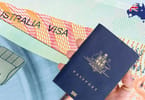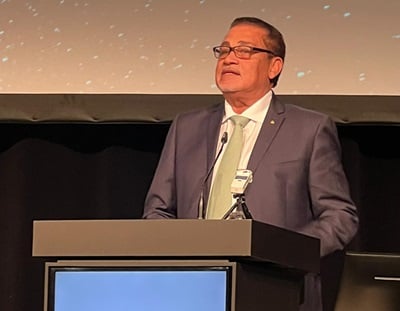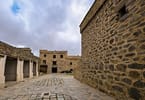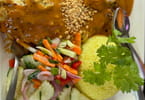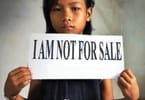GLOBAL tourism hit new records in 2006, with 842-million arrivals, up 4,5% on the previous year. Last year, the industry generated $7-trillion, expected to rise to more than $13-trillion over the next decade.
That means travel and tourism now accounts for 10% of the world’s gross domestic product, 8% of jobs and 12% of global investment.
If SA wants a bigger piece of this pie it needs to be aware of the factors that make for a successful destination. That is why the recently released Travel & Tourism Competitiveness Index from the World Economic Forum is so important. The report aims to identify the competitive strengths of countries along with the barriers that impede development of tourism. This knowledge helps provide a platform for dialogue between the business community and national policy makers.
There are three main categories that form the basis of the index — regulatory framework; business and infrastructure framework; and human, cultural and natural resources framework.
In the first category, the survey looks at areas such as visa requirements, openness of bilateral air service requirements, time and costs required to start a (tourism) business. The second looks at air and ground transport infrastructure, tourism infrastructure, and other related areas such as information communications technology and price-competitiveness. The third records natural and human endowments, looking at sites of natural beauty or items of cultural interest.
This year’s top 10 countries are Switzerland, Austria, Germany, Australia, Spain, the UK, the US, Sweden, Canada and France. SA is the highest ranked African country at 60th.
The purpose of any index is to try and identify factors that may contribute to or predict success in a given area of interest. By score-carding several parameters and aggregating them into a single number a country can compare itself with other countries in a meaningful way. In this case, the World Economic Forum has provided measurable parameters that may help or hinder the recipe for a successful tourism industry.
The good news is the index does indeed correlate with factors such as the number of tourists arriving in the country, or the annual income generated by the tourism industry. The debate for policy makers then is to look at the factors making up the index, assess their relative importance and make changes that will hopefully lead to a higher index score and by implication a more successful tourism industry.
Considering SA’s great natural and cultural resources it is strange that we can’t score a higher rank than Latvia or Panama. Our international isolation cost us many lost years in tourism development, but 14 years into the new democracy we should have done better.
SA scores well on natural resources (21st) and cultural resources (40th). We are certainly price competitive (29th) and generally have good air infrastructure (40th). However, there are a number of areas where we do poorly.
We rank 118th in terms of human resources, 48th in education and training, and 126th in terms of availability of qualified labour. Our ICT infrastructure sticks out as poor relative to the rest of our rankings (73rd), and it won’t be a surprise to learn we are ranked 123rd in terms of safety and security. A ranking of 84th in health and hygiene may scare off the nervous tourist.
For many, the report is a call for government to do more for the tourism sector. Unfortunately, the opposite is true.
The reason SA scores a “C-minus” on all these international indices is they share so many overlapping parameters, and all point to problems in getting the core functions right: safety and security; a judicial system that protects property rights and contracts; a tax system that isn’t arbitrary; a labour market that doesn’t pander unnecessarily to unions.
SA ranks 44th on the Global Competitiveness Report but does poorly on labour efficiency (78th). The World Bank’s Doing Business report pegs us at 35th overall, but shows huge problems in categories such as employing workers (91st), enforcing contracts (85th) and trading across borders (134th).
The Fraser Institute’s Economic Freedom of the World index highlights deficiencies for SA (64th overall) in variation of tariff rates (117th), hiring and firing regulations (116th), government consumption (101st) and integrity of the legal system (98th).
The index from the World Economic Forum shows once again that SA would do well to focus on the basics of government rather than attempting grand plans.
allafrica.com
هن آرٽيڪل مان ڇا وٺو:
- The debate for policy makers then is to look at the factors making up the index, assess their relative importance and make changes that will hopefully lead to a higher index score and by implication a more successful tourism industry.
- The good news is the index does indeed correlate with factors such as the number of tourists arriving in the country, or the annual income generated by the tourism industry.
- Our ICT infrastructure sticks out as poor relative to the rest of our rankings (73rd), and it won’t be a surprise to learn we are ranked 123rd in terms of safety and security.











